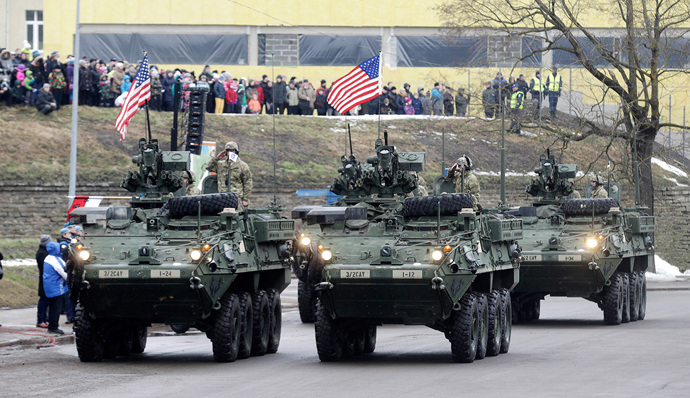By Menna Abbas
Russia’s relations with the US and its NATO allies have plunged to the lowest point since the Cold War over the crisis in Ukraine. Recent events may lead to this belief.
Washington is investing in and deploying a new and upgraded weapons systems in response to Russia’s violations of the 1987 Intermediate-Range Nuclear Forces Treaty, known as the INF, according to Brian McKeon, a top US arms control official, according to Radio Liberty, a Russian Radio Station.
Moscow has repeatedly denied the accusation, and claims that the US itself is violating the treaty because of its policy regarding the European anti-missile shield. Washington, in turn, rejects the accusations.
The US new investments were “prudent planning” and included new long-range cruise missiles, unmanned drone systems, long-range bombers, as well as an upgraded nuclear gravity bomb – the B61-21, McKeon told the House of Representatives’ Armed Service Committee.
“Russia is not violating the INF treaty in isolation from its overall aggressive behaviour,” McKeon said, and added that “this is not just an arms control issue, but represents a broader challenge to transatlantic security.”
“Accordingly, we are developing a comprehensive response to Russian military actions and are committing investments now that we will make, irrespective of Russia’s returning to compliance with the INF treaty,” he stated.
Therefore, Russia will counter NATO’s US-led missile defence programme by deploying new strike weapons capable of piercing the shield, Russia’s President Vladimir Putin said.
Putin told defence officials that by developing defences against ballistic missiles, Washington aims to “neutralise” Russia’s strategic nuclear deterrent and gain a “decisive military superiority.”
“Over the past three years, companies of the military-industrial complex have created and successfully tested a number of prospective weapons systems that are capable of performing combat missions in a layered missile defence system. Such systems have already begun to enter the military this year. And now we are talking about development of new types of weapons,” Putin said.
For many years, the Kremlin has protested the US-led missile shield, voicing concern that it could eventually become capable of intercepting Russia’s nuclear-tipped intercontinental ballistic missiles, thus eroding the strength of the nation’s nuclear deterrent.
Washington, in turn, has argued that the shield was aimed to fend off missile threats from nations such as, Iran and North Korea and would not be capable of dealing with the massive Russian nuclear arsenal.
Kremlin spokesman, Dmitry Peskov said that Russia aims to spend less on its missile-defence system than the United States.
“The Russian president has repeatedly said that we are not going to follow the United States’ lead and spend stratospheric amounts on a missile-defence system,” he told journalists. “The president has been saying the options we choose are much lower in cost but no less, and maybe even more, efficient.”
The US will spend for the additional weapons and equipment, with a budget request of, more than $3.4bn for military spending in Europe in 2017, more than quadrupling the current budget of $789m.


